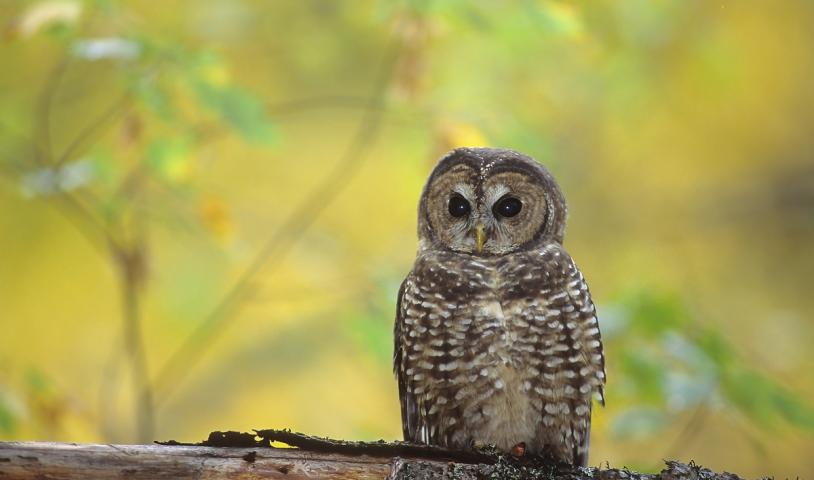Ottawa asks court to ignore experts affidavits
Monday, April 20, 2009Ottawa asks court to ignore experts affidavits
By Mark Hume, The Globe and Mail
January 9, 2008
VANCOUVER -- The federal government yesterday tried to block the evidence of several witnesses - including that offered by renowned fisheries scientists who recently worked as consultants to Ottawa - in a case that questions the Conservatives commitment to the Species At Risk Act.
By rejecting experts whom it recently regarded as top environmental advisers, describing them as biased and irrelevant, Ottawa is trying to head off a sweeping legal review of endangered-species recovery plans drafted under SARA.
In an application, Marja Bulmer, a lawyer for the Department of Justice, asked the Federal Court of Canada to strike affidavits filed by Ecojustice on behalf of three environmental groups that are seeking a judicial review of a recovery strategy for a tiny, endangered minnow known as the Nooksack dace.
Found in Canada in only a handful of streams in British Columbia, the Nooksack dace is facing extinction as its habitat is steadily being eroded by development in the Fraser Valley.
Ecojustice filed affidavits that allege the Ministry of Fisheries and Oceans deliberately did not identify critical habitat in the Nooksack dace plan, even though biologists know exactly where that habitat is.
It claims the government, which must come up with recovery plans for approximately 200 endangered species in Canada, has fallen into a pattern of drafting strategies that effectively do nothing because they do not identify critical habitat.
Among the affidavits challenged was one filed by Mike Pearson, a consulting biologist in B.C. who specializes in the management of species at risk and who was hired by Fisheries and Oceans to help draft the Nooksack dace recovery plan.
Also objected to were affidavits by Eric Taylor, a professor of zoology at the University of British Columbia, where he is curator of one of the largest fish collections in Canada, and Don McPhail, a professor emeritus from UBC whose definitive book, The Freshwater Fishes of British Columbia, is based on 40 years of field research. Dr. McPhail was also a member of the governments Nooksack Dace Recovery Team.
"I agree with Mike Pearson when he states that that the Recovery Team were able to identify the quantity and location of critical habitat needed for survival of the Nooksack dace," Dr. McPhail states in his affidavit.
"I also agree with Mike Pearson ... when he says that what DFO has done with the Final Recovery Strategy for the Nooksack dace in Canada is to remove the specific delineation of critical habitat (specific location and map), leaving only a description of attributes of critical habitat. That is, they describe what critical habitat looks like but not where it is."
But Ms. Bulmer told the court that all or parts of the affidavits should be struck "on the basis that they contain clearly irrelevant or otherwise inadmissible evidence."
She said the affidavits are biased, and so broad in scope the government would be forced to do exhaustive work - interviewing officials across Canada and reviewing masses of documents - in order to reply to all the claims.
"Most of the evidence sought to be excluded relates to various other decisions of federal decision-makers; the governments general track record in the protection of species at risk; statements about the status of species in Canada and globally; and the affiants personal views, interpretation and speculation about various provisions and purposes of SARA," Ms. Bulmer states in a written argument.
Ms. Bulmer said that if allowed to stand, the affidavits could force Federal Court to conduct a far-reaching review of government policy that would be better suited to a royal commission.
But Roger Lafrenière, prothonotary (chief clerk) of the Federal Court, stressed the need to allow a judge to hear a wealth of information. He ruled the bulk of the material could stand.
"The applicants want to put as much information before the court as they can in what they view as a precedent-setting case," he said.
Mr. Lafrenière said, however, it was clear some of the material in the affidavits was too broadly cast, and he asked Ms. Bulmer and Devon Page, the lawyer for Ecojustice, to see whether they could agree on trimming the material.
After a short break, the two lawyers agreed to remove some paragraphs.
Mr. Page said "statements of opinion were edited out, but the bulk of the material stays in."
A date has not yet been set for the full hearing.





